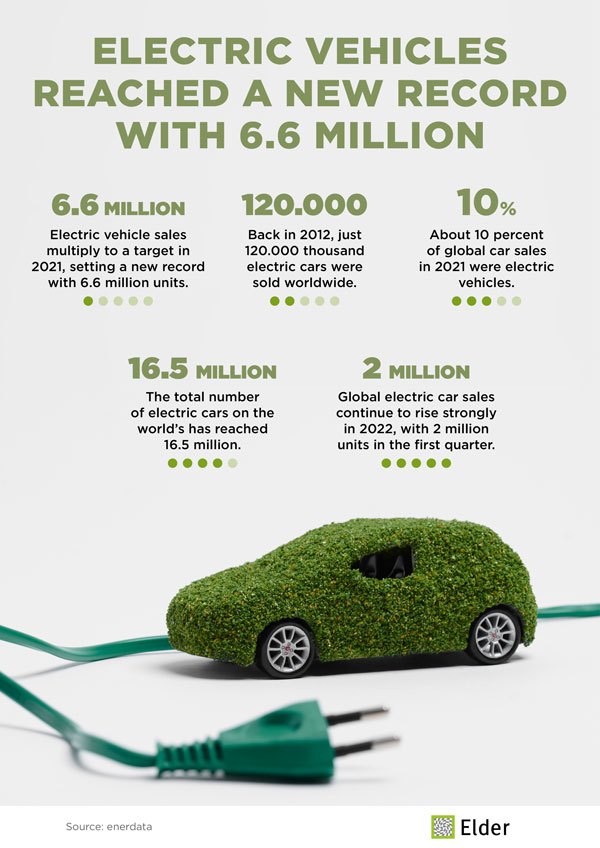
Under the coordination of the Energy Market Regulatory Authority (EMRA) and the Electricity Distribution Services Association (Elder), the Demo Day of the "Enerjim Sensin Acceleration Program", which aims to support initiatives that develop projects for the energy sector in cooperation with ITU ARI Teknokent, was held in Ankara.
During the event, 16 of the 30 projects that left to the finals were promoted, including new approaches in energy sustainability, supply security, technological transformation, efficiency, infrastructures, and consumer satisfaction. Afterwards, the jury determined the three finalists to be awarded the Elder Special Award, totaling 600.000 Turkish Liras. Winner Tayko Pil awarded the first prize of 300.000 Turkis Liras, the second NuManufacturing won 200.000 Turkish Liras and the third Werover won 100.000 Turkish Liras.
Speaking at the opening of the event, EMRA President Mustafa Yılmaz reminded that the global energy crisis is on the agenda of the world. Noting that crisis is a word that evokes poverty and bottleneck and that does not sound good, he added; “However, crisis means new opportunities. If there was no crisis, if there were no bottlenecks, solutions would not be discussed. Problems develop our solving abilities. Problems give us experience. We have to look for a solution within the problem,".
Elder President Kıvanç Zaimler also said in his speech that the increase in the number of qualified projects has made Enerjim "Sensin Acceleration Program" one of the most important brands in the field of entrepreneurship. Emphasizing that there is experience, effort, self-sacrifice, knowledge, equipment and effort in all of the studies participating in the program. Zaimler added, "We cannot underestimate any effort. Of course, we need to give opportunities. Every work is valuable, do not be discouraged, try to take our country further, do not stop."
Expressing that today, humanity has to think about security of energy supply, affordability and protecting the climate at the same time, Zaimler said, “It is very difficult to keep these three together. There is only one issue that will change this equation. And it is brand new technologies that will radically change this business. It is possible to develop these technologies with the support of our universities, business life and the public.”
ITU ARI Teknokent General Manager Prof. Dr. Attila Dikbaş, on the other hand, stated that they aim to be an important reference point for entrepreneurs by adding the energy sector to the areas they support. Dikbaş underlined that they support startups not only financially, but also in every aspect by providing commercialization, scaling, networking, laboratory infrastructure and mentoring support.
Source: ENERJI GUNLUGU
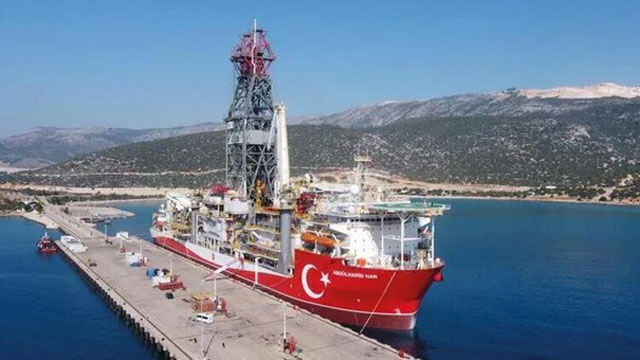
Türkiye wants to engage in production activity in counties from which it buys natural gas or oil, Energy Minister Fatih Dönmez has said, adding that studies are underway to identify the location for a third nuclear plant.
“This is our new energy strategy. We consider establishing partnerships with those countries to acquire a share in the production of natural gas or oil. We have been receiving offers, particularly from Africa, since we have increased our operations capabilities in the seas,” Dönmez said.
“Those countries look very favorably upon this idea and we have invited them to our country. We can act together with friendly nations,” he said, unveiling the new energy strategy in a press meeting.
Dönmez noted that they raised the issue with the United Arab Emirates last week.
“We traveled to Indonesia and Malaysia. In Malaysia, we discussed the prospects of natural gas exploration and cooperation.”
Türkiye has played an important role over the past years in strengthening energy supply security for neighboring countries, Dönmez added.
“While improving our own infrastructure, we have secured new resources. We are buying natural gas from Russia, Iran and Azerbaijan.”
Türkiye has also increased its LNG capacity bbyputting two FRSUs (Floating Storage Regasification Unit) in use in addition to the already existing two LNG land terminals and a third FRSU will be launched in Saros, he noted.
Dönmez stressed that Türkiye may further diversify its suppliers of natural gas.
“The Gulf countries may deliver gas here. Israeli gas can arrive here, and we may buy gas from Nigeria. We are in talks with Libya.”
The minister added that all natural gas storage facilities were full as of the end of September and ready for the winter. “They will be used if problems with deliveries via pipelines may occur.”
He also said that work is ongoing to determine the location where the country’s third nuclear power plant will be established. “The likely location is the Thrace region,” Dönmez added. Construction of the Akkuyu Nuclear Power Plant continues at “full speed,” he said, recalling that a second nuclear plant is planned to be built in the province of Sinop.
Source: HURRIYET DAILY
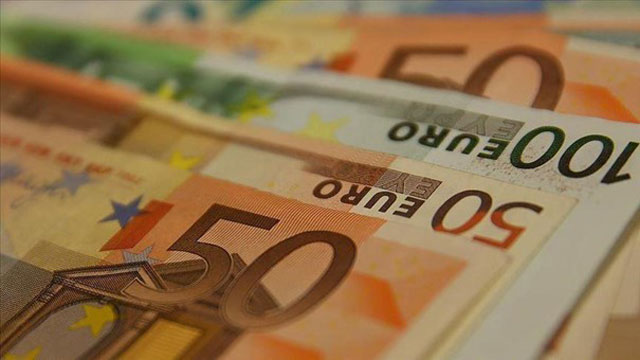
New financial commitments of the European Bank for Reconstruction and Development (EBRD) in Türkiye are likely to reach €1.5 billion, Arvid Tuerkner, EBRD managing director for Türkiye, told Anadolu Agency in an interview.
Given the high cost of energy, he expressed hope that the bank might fund more renewable energy projects in the country. He also predicted that if a more stable investment environment developed, more investments might be made.
Speaking on the sidelines of the EBRD's anniversary event, 10 Years of Support to Women in Business in Türkiye: Reflection on the Past and Ambition for the Future, Tuerkner acknowledged that Türkiye is not immune to global developments with a challenging year from increasing energy prices and high inflation, which has made it more arduous for investments.
'We are doing fine especially in light of the difficult economy. We see lira depreciation and high inflation, it is not an easy environment for investments and without investments, there is also nothing we can finance. There has been less foreign direct investment this year because of the circumstances,' he said.
Despite the difficult circumstances, he said the bank signed €1.1 billion worth of new commitments with a few in the pipeline until the end of the year.
'I think we will come out with €1.4-1.5 billion financing this year which is not bad in the current circumstances, but it is not a record either,' Tuerkner noted.
Tuerkner stated that while the cost of importing energy resources was a hardship, Türkiye had at least seen economic development, and the bank had increased its growth predictions for the country to 4.5% this year and 3.5% for next year.
'This is an achievement compared to other countries but I think it also came at a price of currency depreciation, volatility and inflation. That is also hardship for people and makes business planning very difficult,' he said.
- High share of green investments in various sectors
According to Tuerkner, Turkish companies have demonstrated excellent resilience and a capacity to negotiate the challenging circumstances, but a more secure climate would give businesses more confidence to invest even more.
Nonetheless, he said the bank remains as supportive, interested and engaged in Türkiye as ever, and the few new investments that will be signed next year is testament to this commitment, with the likelihood that annual investments will continue unless volatility increases further, potentially creating problems for investments.
The EBRD would like to engage more in renewable energy, an area that it has been involved with a high share in Türkiye to date across many sectors, as it is cheaper to produce energy from renewables compared to fossil fuels. However, this engagement is dependent on regulatory environment and incentives.
“I think it reinforces the push to greening the economy and especially the energy generation,' Tuerkner said.
Data shared by the EBRD shows that Türkiye is currently the bank's largest market with an annual investment of €1.7 billion in 2020 and €2 billion in 2021, based on a €7.5 billion portfolio as of October 2022.
Almost €17 billion has been invested cumulatively since 2009 in over 385 projects and trade facilitation lines, of which 93% was channeled to the private sector.
- Women in Business program in Türkiye celebrates 10 years
Tuerkner also shared details on the Women in Business program that the EBRD first launched 10 years ago in Türkiye and then applied to other countries.
He said the flagship program promotes equality and the removal of barriers and difficulties in Turkey and internationally.
'The program provides much more than funding. It provides advisory and technical assistance, creating products that are a better fit for female entrepreneurs with knowledge and expertise sharing,' Tuerkner said.
Over 10 years, €900 million in total has been earmarked for the support of female entrepreneurs in Türkiye.
Given the difficulty in obtaining financing outside of major cities, more than 60% of the loans offered through the initiative have gone to female entrepreneurs in more rural areas.
Data shows that participating banks have financed 15,000 women-led or managed SMEs in the country and 14,000 SMEs were provided with advisory, mentorship and training.
While 64% of the total sub-loans were disbursed to women-led SMEs located in the regions outside of Istanbul, Ankara and Izmir, 41% of the sub-loans were disbursed to start-ups or first time sub-borrowers.
Women-led businesses accessing finance under the program significantly grew their operations and were 5% less likely to default within three years after the start of the program.
Almost two-thirds of the EBRD's projects in Türkiye over the past two years have included a gender component.Source: AA
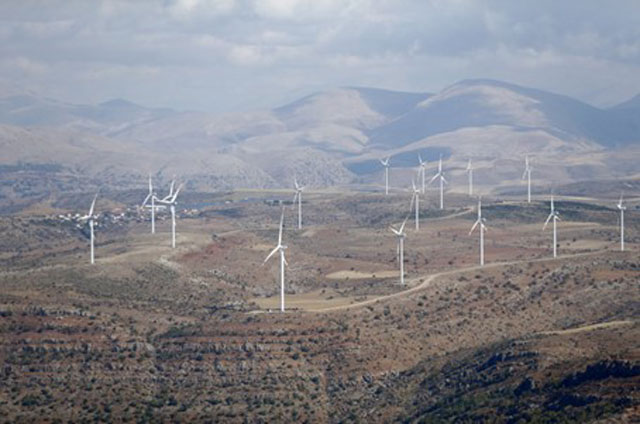
Türkiye could install another 1,000 megawatts (MW) in wind energy capacity next year, an addition that could attract $1 billion (TL 18.57 billion) in fresh investments, an executive said Saturday.
Türkiye’s installed wind energy capacity will reach 12,000 MW heading toward the end of the year, a threshold that will be exceeded in the first quarter of 2023, Turkish Wind Energy Association (TÜREB) head Ibrahim Erden said.
“My guess is that close to 1,000 megawatts will be added in Türkiye by the end of next year. The investment equivalent of this is at the level of about $1 billion,” Erden said in a statement, also citing the energy crisis around the world marked by soaring prices.
Türkiye is still highly dependent on imports to cover its energy needs, which leaves it vulnerable to rising costs that skyrocketed following Russia’s invasion of Ukraine. To boost its renewable energy production, it launched large-scale projects and began solar and wind power station tenders.
Renewables accounted for more than 95% of new capacity increases in the country last year. The total installed electricity capacity reached over 100 gigawatts by the end of March this year, with more than half from renewables, including hydro, wind, solar and geothermal.
Türkiye ranks fifth in Europe and 12th in the world in renewable energy installed capacity and seventh in Europe and 12th in the world in wind energy installed power.
Erden said Türkiye could be adding about 3,000 MW in wind energy capacity per year through the effective use of financing, human resources, engineering power and equipment production.
Some 1,750 MW in wind energy capacity were added throughout 2021, according to the Turkish Wind Energy Association, the highest annual addition to date. A previous record increase was recorded in 2016 with 1,248 MW.
The total wind energy installed capacity reached 10,750 MW by the end of 2021, according to the TÜREB.
Erden also said Türkiye’s exports of wind turbines and equipment are estimated to exceed 1.5 billion euros this year, a figure that he said is seen increasing by at least 10% in 2023.
The country last year exported approximately $1.49 billion worth of wind turbines and equipment to nearly 50 countries.
Source: DAILY SABAH
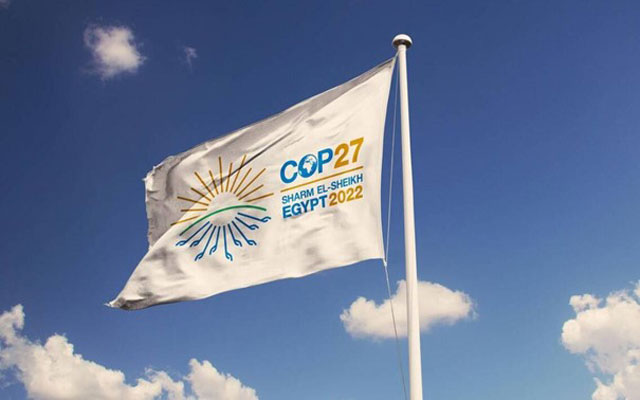
The COP27 summit kicks off Sunday in Egypt with nearly 200 countries struggling to outpace increasingly dire climate impacts in a world upended by war and economic turmoil.
Just in the last few months, a cascade of climate-addled weather disasters has killed thousands, displaced millions and caused billions in damages: massive flooding in Pakistan and Nigeria, deepening droughts in Africa and the western US, cyclones in the Caribbean, and unprecedented heat waves across three continents.
"Report after report has painted a clear and bleak picture," said UN chief Antonio Guterres in the run-up to the 13-day conference in the Red Sea resort of Sharm el-Sheik.
"COP27 must lay the foundations for much faster, bolder climate action now and in this crucial decade, when the global climate fight will be won or lost."
Concretely, that means slashing greenhouse emissions 45 percent by 2030 to cap global warming at 1.5 degrees Celsius above late-19th-century levels.
Warming beyond that threshold, scientists warn, could push Earth toward an unlivable hothouse state.
But current trends would see carbon pollution increase 10 percent by the end of the decade and Earth’s surface heat up 2.8C, according to findings unveiled last week.
Promises made under the Paris Agreement would, if kept, only shave off a few tenths of a degree.
"Our planet is on course for reaching tipping points that will make climate chaos irreversible and forever bake in catastrophic temperature rise," Guterres said recently.
"We need to move from tipping points to turning points for hope."
For the UN climate forum, that means transitioning from negotiations to implementation.
It also means a shift from politics to the economy, with government investments in China, the US and the European Union leveraging hundreds of billions of yuan, dollars and euros into trillions.
The already daunting task of decarbonising the global economy in a few years has been made even harder by a global energy crunch and rapid inflation, along with debt and food crises across much of the developing world.
"There have been fraught moments before," said E3G think tank senior analyst Alden Meyer, recalling other wars, the near collapse of the UN-led process in 2009, and Donald Trump yanking the United States out of the Paris Agreement in 2016.
"But this is a perfect storm," dubbed by some a "polycrisis", said the 30-year veteran of the climate arena.
After front-line negotiators set COP27 in motion on Sunday, more than 120 world leaders will put in appearances on Monday and Tuesday.
The most conspicuous no-show will be China’s Xi Jinping, whose leadership was renewed last month at a Communist Party Congress.
US President Joe Biden has said he will come, but only after legislative elections on Tuesday that could see either or both houses of Congress fall into the hands of Republicans hostile to international action on climate change.
Cooperation between the United States and China -- the world’s two largest economies and carbon polluters -- has been crucial to rare breakthroughs in the nearly 30-year saga of UN climate talks, including the 2015 Paris Agreement.
But Sino-US relations have sunk to a 40-year low after a visit to Taiwan by House leader Nancy Pelosi and a US ban on the sale of high-level chip technology to China, leaving the outcome of COP27 in doubt.
A meeting between Xi and Biden at the G20 summit in Bali days before the UN climate meeting ends, if it happens, could be decisive.
One bright spot at COP27 will be the arrival of Brazilian president-elect Luiz Inacio Lula da Silva, whose campaign vowed to protect the Amazon and reverse the extractive policies of outgoing President Jair Bolsonaro.
More than any other COP, perhaps, this one will be about money -- or how little of it has flowed from countries that got rich burning fossil fuels to mostly blameless poorer nations suffering the worst consequences.
Developing nations have "high expectations" for the creation of a dedicated funding facility to cover loss and damage, UN Climate Change Executive Secretary Simon Stiell said on Friday.
"The most vulnerable countries are tired, they are frustrated," Stiell said. "The time to have an open and honest discussion on loss and damage is now."
The United States and the European Union -- fearful of creating an open-ended reparations framework -- have dragged their feet and challenged the need for a separate funding stream.
Source: HURRIYET DAILY
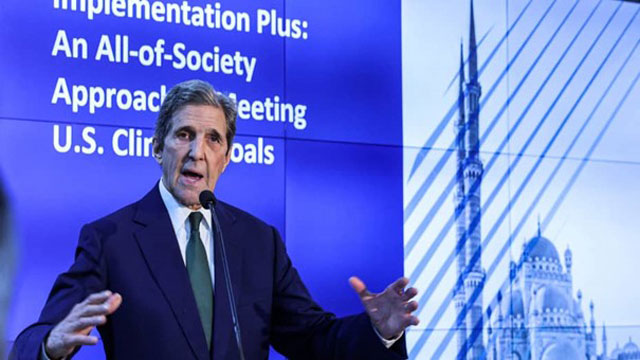
U.S. Climate Envoy John Kerry on Wednesday unveiled a carbon offset plan that would allow corporations to fund renewable energy projects in developing countries that are struggling to transition away from fossil fuels.
The program, called the Energy Transition Accelerator, is in partnership with philanthropic groups like the Rockefeller Foundation and the Bezos Earth Fund and will be finalized over the coming year. Officials argue it could funnel billions of dollars from the private sector into the economies of developing countries working to shift to renewable power sources like wind or solar.
The plan will create a new class of carbon offsets that represent investments in projects that help accelerate renewable energy projects or build climate change resilience in a developing country. Businesses can buy these offsets to balance out some portion of their CO2 emissions, and the money will go to these projects.
Chile and Nigeria are among the developing countries interested in the program, the State Department said, and Bank of America, Microsoft, PepsiCo and Standard Chartered Bank have “expressed interest in informing the ETA’s development.”
Voluntary carbon offset programs have been widely criticized as insufficiently regulated schemes that allow governments and corporations to undermine net-zero emission targets. Reports have shown, for example, that land managers are not changing their logging practices in some forests where offsets were purchased, and that some stands of timber that were supposedly “saved” had already been preserved and weren’t slated for logging anyway.
In order to buy these credits under the new program, companies must commit to achieve net-zero emissions by 2050 and report annually on emissions as well as progress toward the target, according to a draft of the plan. Fossil fuel companies are also not allowed to participate in the program.
But several major environmental groups said they are not supporting the plan, arguing the proposal lacked details and could ultimately undermine efforts to reduce global emissions.
Rachel Cleetus, policy director with the climate and energy program at the Union of Concerned Scientists, said the proposal fails to meet the urgency of the climate crisis and is not a substitute for the public finance that developing countries require to shift away from fossil fuels.
“Carbon offsets are not an answer in a world already on fire, under water and facing mounting climate losses and damage,” Cleetus said. “A voluntary carbon credit program won’t guarantee deep, real cuts in emissions — it’s tantamount to rearranging the deck chairs as the climate ship is going down.”
World Resources Institute CEO Ani Dasgupta said in a statement that the program “has to ensure guardrails for how companies participate and that the funding advances developing countries’ own priorities for a just energy transition.”
Kerry announced the proposal at the United Nations Climate Change Conference in Egypt, also called COP27. The summit has in part focused on directing funding to help poor nations recover from loss and damage caused by climate change.
Source: CNBC
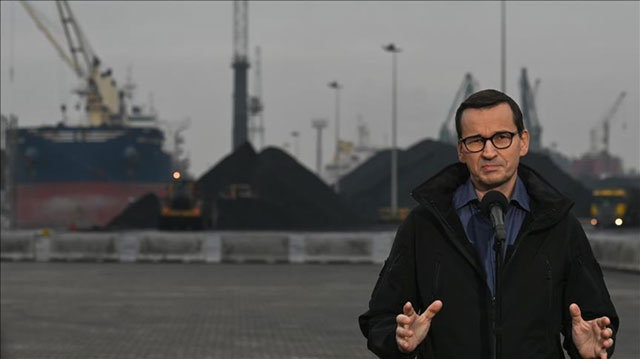
Poland plans to build three nuclear power plants with six reactors as part of its nuclear power program, Polish prime minister Mateusz Morawiecki announced late Sunday.
According to the Polish news agency PAP, Morawiecki said the country’s nuclear program has been instigated to ensure energy security.
Morawiecki confirmed on Twitter on Oct. 28 that Warsaw would team up with the US and American company Westinghouse to build its first nuclear power plant.
'Nuclear power plants will help make us independent from the whims of the market, energy traders and the weather,' he said.
Morawiecki also confirmed that the nuclear power investment energy 'does not mean Poland will not be developing renewable sources of energy.'
'However, we need stable energy, which today is ensured by coal,' he added.
Source: AA
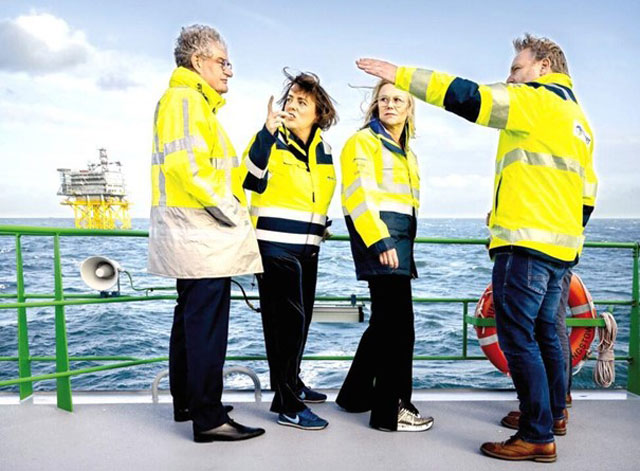
Nine countries including Britain, Germany, the United States and Japan joined an international alliance on Nov. 8 at the U.N. COP27 climate summit, to encourage the development of offshore wind power.
The Global Offshore Wind Alliance (GOWA), established to “remove barriers” to the energy, was set up by the International Renewable Energy Agency (IRENA), Denmark and the Global Wind Energy Council.
Offshore wind can be deployed at large scale, in short timeframes and at competitive cost, GOWA said in a statement.
Other nations joining on Nov. 8 were Belgium, Colombia, Ireland, Norway and the Netherlands.
IRENA and the International Energy Agency (IEA) predict that offshore wind capacity will “need to exceed 2000GW in 2050, from just over 60GW today” to help prevent temperatures from rising by more than 1.5 degrees Celsius above the pre-industrial era.
To do this, GOWA aims to reach a total of “at least 380GW installed capacity” by the end of the decade.
Germany climate envoy Jennifer Lee Morgan, who said her country is the third-biggest offshore wind power producer in the world, said there were plans for huge increases.
“We now see an opportunity to leverage our know-how and skills in the offshore space and help other countries in building or increasing their own offshore wind power generation capacity,” Morgan said.
Belgian Energy Minister Tinne Van der Straeten said that the “North Sea will transform to a large sustainable power plant,” and that “with this green acceleration, we can replace gas and oil faster.”
Source: HURRIYET DAILY
Climate and Development: Agenda for Action
Climate change poses a major threat to long-term development objectives, especially poverty reduction, and accelerated emission reductions are needed, particularly in high-income and other high-emitting countries. Reducing emissions can be done without comprising development: taken together, CCDR low-carbon development strategies reduce emissions by 70%, without significant impact on growth, provided that policies are well designed and financing is available. Financing needs average 1.4 percent of GDP, a manageable amount with appropriate private sector involvement. But in lower-income countries, financing needs can exceed 5 percent, which will require more support from high-income countries, including increased concessional resources.
You may read the full report from HERE
Enlit Europe
November 29, 2022
1232nd International Conference on Green Energy and Technology
December 3rd, 2022
Global conference on Renewable Energy and Climate Change (GCRECC)
January 1st, 2023
Distributech International
February 02, 2023
1299th International Conference on Green Energy and Technology (ICGET)
March 20-21st, 2023

